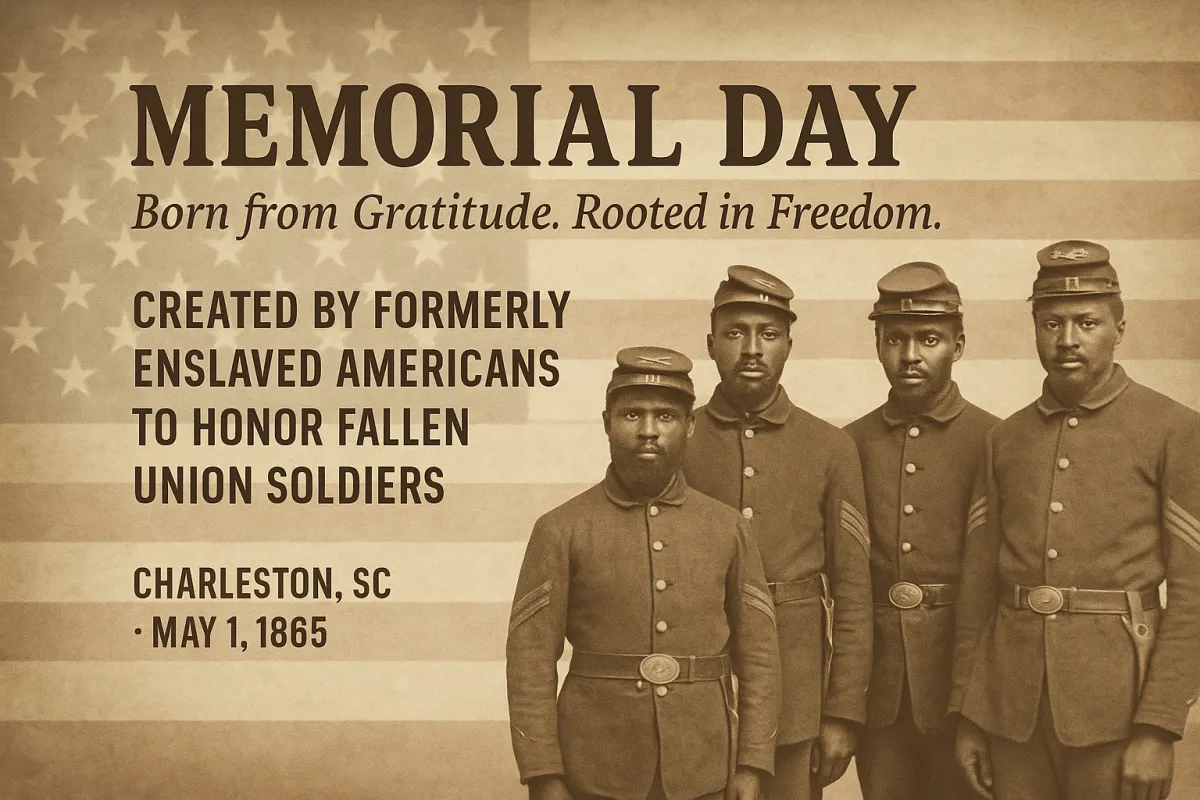
Uncovering the Origins of Memorial Day: Honoring the Forgotten RootsNew Blog Post
Each year, Memorial Day is marked by parades, ceremonies, and moments of remembrance across the United States. While many recognize it as a day to honor fallen soldiers, few know its powerful origin story—one rooted in the struggle for freedom, justice, and dignity by formerly enslaved African Americans.
The Hidden History: Decoration Day in Charleston, 1865
On May 1, 1865, just weeks after the end of the Civil War, a remarkable event unfolded in Charleston, South Carolina. Formerly enslaved Black residents of the city gathered to give a proper burial to 257 Union soldiers who had died in a Confederate prison camp and been buried in a mass grave.
Over two weeks, they exhumed the bodies and reinterred them in individual graves, creating what they called the “Martyrs of the Race Course” cemetery. Then, they held a public procession and ceremony to honor the dead. About 10,000 people attended, including 2,800 Black children who marched, sang, and laid flowers on the graves. It was a powerful act of commemoration and emancipation, described by some historians as the earliest version of what would become Memorial Day.
Sources and Historical Research
This story was brought to national attention through the work of historian David W. Blight, author of Race and Reunion: The Civil War in American Memory. Blight discovered accounts of this 1865 ceremony while researching in the archives of the Harvard University library. According to Blight, this "first Decoration Day" was a profound demonstration of gratitude by African Americans who viewed the Union soldiers as heroes who died fighting for their freedom.
Ben Becker and other writers have further explored how this origin story was gradually erased from public memory, as Memorial Day became a more generalized and depoliticized holiday. Today, many Americans are unaware that its earliest form was initiated by Black Americans honoring those who died in the cause of liberation.
Why This History Matters
Understanding the true roots of Memorial Day restores dignity to the actions of those formerly enslaved men, women, and children. It reminds us that this day was born not just from war, but from the deep human desire for freedom, justice, and remembrance.
Reclaiming this history doesn’t diminish the holiday—it deepens its meaning. It connects the sacrifice of soldiers to the struggles of everyday people who knew that freedom was not just an idea, but a fight.
Conclusion: Remember the Rememberers
As we pause to honor those who gave their lives in service to our country, let us also remember those who first remembered them. The Black citizens of Charleston, SC in 1865 didn’t just bury soldiers—they birthed a legacy.
Let’s honor all the stories that built Memorial Day. Because memory, like freedom, is something we must fight to preserve.
Sources:
David W. Blight, Race and Reunion: The Civil War in American Memory, Harvard University Press.
"The First Decoration Day" – Yale University Lecture by David W. Blight.
Ben Becker, “We Did It, They Hid It: How Memorial Day Was Stripped of Its African American Roots,” Black Then.